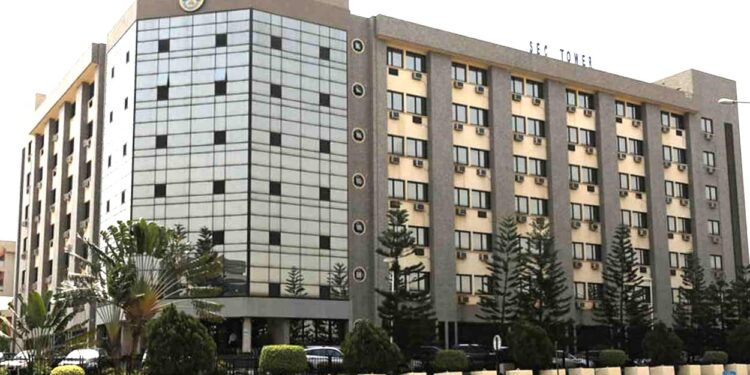A total of N120.88 billion in registered private equity and infrastructure investment funds have remained undeployed in Nigeria’s capital market, according to the latest released figures from the Registered Private Equity and Infrastructure Committed Capital and Draw Down Position as at Q4, 2024.
The data published by the Securities and Exchange Commission (SEC) revealed that out of the combined N409.06 billion in total committed capital across both sectors, only N288.18 billion has been drawn down as of Q4 2024—representing approximately 70.5% utilization.
The remaining 29.5%, or N120.88 billion, is still idle, indicating significant untapped capital awaiting deployment into projects and businesses.
Infrastructure Funds hold most undeployed capital
Infrastructure funds, which reported a total of N305.97 billion in committed capital, have drawn down N248.27 billion, leaving N57.7 billion yet to be utilized. This accounts for nearly 48% of the total undeployed funds, highlighting delays or pending project executions in the infrastructure sector.
Despite the increase in committed capital from Q3 to Q4 2024—rising by 12.58% from N271.76 billion—the drawdown figure for infrastructure remained flat, suggesting that while investor interest in infrastructure continues to grow, actual fund disbursement has not kept pace.
Key contributors to the undeployed infrastructure capital include:
- ARM-Harith Infrastructure Fund – N9.36 billion committed, N4.63 billion drawn down; N4.73 unutilized.
- Actis managed by Actis West Africa – N60.83 committed, N14.22 billion drawn down; N46.61 billion unutilized.
- Africa Plus Partners with Africa Infra Plus Fund 2 has about N150 million unutilized; N18 billion committed, N17.85 billion utilized.
However, United Capital Infrastructure Fund is operating on overdraft, as could be seen below:
- United Capital Infrastructure Fund – N6.6 billion committed (N13.22 billion drawdown vs N6.6 billion committed).
Private Equity Funds leave N63.17 billion undeployed
The private equity segment recorded N103.09 billion in total committed capital with drawdowns at N39.91 billion as of Q4 2024, resulting in N63.17 billion in unutilized funds.
Among the top private equity funds holding undeployed capital:
- ARM Private Equity Fund – N7.5 billion committed, N3.25 billion drawn; N4.25 billion remaining.
- CAN Private Equity Fund LP – N48.02 billion committed, N24.28 billion drawn; N23.74 billion unutilized.
- Pioneer LLP Fund – N35.16 billion committed, N7.65 billion drawn; N27.51 billion unutilized.
- NIG. HEALTHCARE DEV. FUND – N7.5 billion committed; N3.18 billion unutilized.
It is worthy of note that CAN Fund Manager Limited manages both CAN Private Equity Fund LP and Pioneer LLP Fund.
Additionally, seven of the ten listed private equity funds having zero commitments to their registered targets have drawn down no capital at all. These include:
- MBO Private Equity Fund
- CCA Growth Fund
- Syntaxis NG Growth Fund
- Caren I Private Equity Fund
- Alto Africa Growth Fund
- Verod CGO II B L.P. Fund
Market implications of idle capital
The undeployed capital figure of N120.88 billion may pose implications for fund managers and the broader economic ecosystem. While committed capital represents investor confidence, the lag in disbursement could impact project delivery timelines, especially in sectors like infrastructure where financing gaps persist.
Analysts monitoring fund activity note that capital commitment without timely drawdown can signal systemic challenges in execution, ranging from regulatory bottlenecks to project readiness issues.
Drawdowns static despite higher commitments
One of the key takeaways from the Q4 2024 data is that while infrastructure funds grew in terms of committed capital—rising from N271.76 billion in Q3 to N305.97 billion in Q4—drawdowns did not increase, remaining flat at N248.27 billion. Similarly, private equity funds showed no change in committed or drawn capital between quarters.
This disconnect points to a broader challenge in translating financial commitments into real economic impact. For both infrastructure and private equity sectors, unlocking and deploying this idle capital could play a vital role in stimulating growth and closing the country’s investment gaps.






















